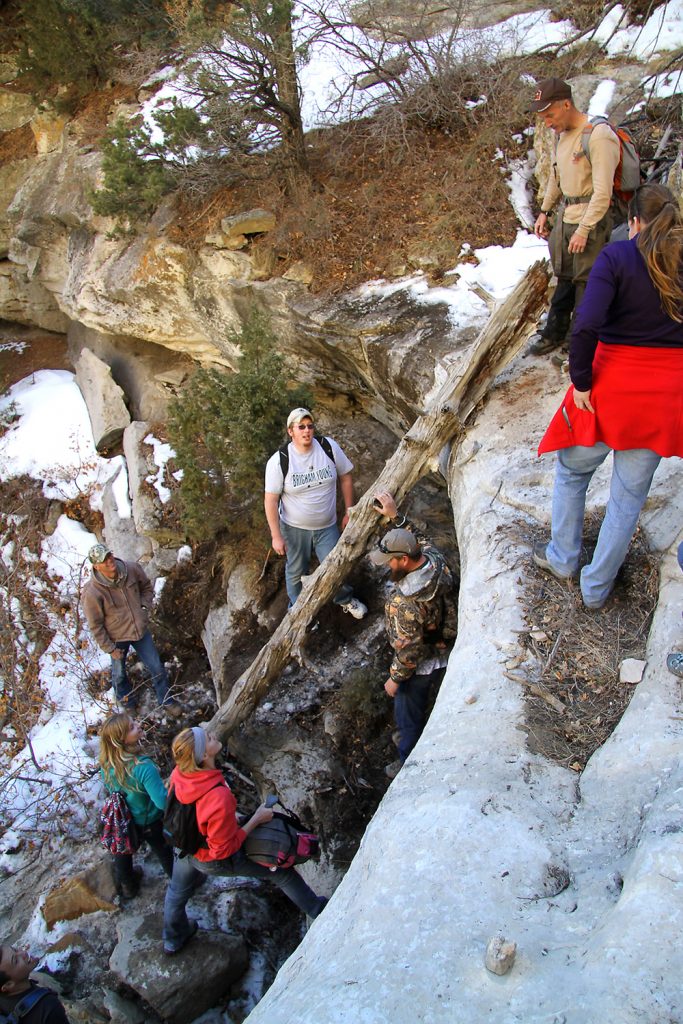Time for bear denning season

This archived article was written by: Katrina Wood
Every year, students enrolled in wildlife science classes at USU Eastern go bear denning. How-ever, due to unusually warm weather, this year’s event was canceled.
Black bears are active throughout spring and summer, but during the fall and winter, they spend a majority of their time resting. During this hibernative state, males and females sleep in dens. If a female breeds before she dens, she gives birth to cubs. The cubs spend the first few months of their lives in the den with their mother, and in May, they emerge for the first time.
In these months of hibernation, usually February or March, biologists locate the bears with radio-collars and tranquilize them to find out how many cubs the bears had and gather other information. Varying from several mile-long hikes to leisurely strolls from the highway, groups visiting the bears can range from 20 to 100 people. During these visits, biologists and students have the opportunity to witness first-hand what it’s like to be in the field.
This winter, students in the Wildlife Science program looked forward to the yearly bear denning trip, but due to the unusually warm weather and effect it had on the bears, the trip and all trips in the local area were canceled.
Originally scheduled for the first Saturday in March, the planned date to go bear denning was pushed to President’s Day. The week before the trip, biologists checked on the bears and discovered many of them were already active and out of their dens, sensitive from the changes in temperature but unaware of the time of year.
Other than the trip being canceled, the change of weather has affected the bears in other ways. Mike King, advisor over the Wildlife Science program at Eastern, said food sources can run low. “If females have cubs, there’s a possibility that they might abandon them.“If weather becomes cold again, it can threaten the baby bears. “The cubs certainly will not be able to be out on their own. They’re about six to eight weeks old. They’re just tiny.”
Though students and faculty are disappointed by the trip’s cancelation and chance to work in the field, they look forward to the upcoming year. King states, “There are a lot of variables that come into play. I don’t care if it’s not that much colder; but it’s nice to have a little bit of snow on the ground.” Above anything, he looks forward to students learning what the work is really like, and shows excitement towards the new bachelor program available in Wildlife Science at Eastern. “It’s rewarding for me to be able to see this come to fruition and start to see students graduate.”
If you’d like more information about the Wildlife Science bachelor’s degree program, contact Dr. Mike King at [email protected].




